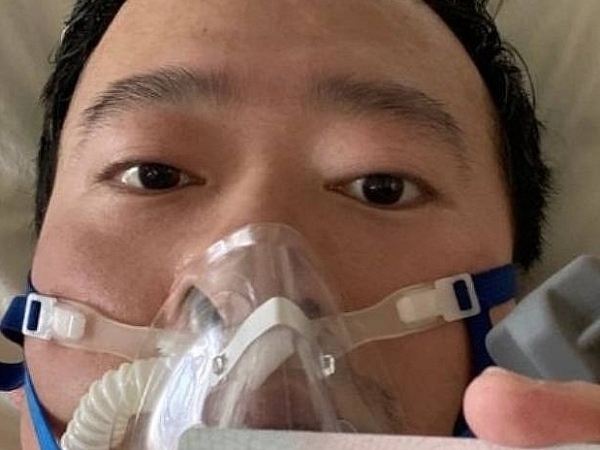Insta
Death Of Chinese Doctor Who Forwarned About The Deadly Coronavirus Outbreak But Was Silenced Sparks Huge Anger

Time24
Li Wenliang, the Chinese doctor from Wuhan, who was targeted by police for trying to forewarn on the deadly coronavirus virus in the early weeks of the outbreak, has died.
On 30 December, Li informed his friends who are part of his medical school alumni group on the popular Chinese messaging app WeChat about the virus and requested them to caution their loved ones privately. But within hours screenshots of his messages had gone viral -- without his name being blurred.
Li worked in the Wuhan hospital were several cases of a SARS-like illness were identified in patients who had visited a seafood market in the city.
On 3 January, Li was called to the local police station and reprimanded for "spreading rumors online" and "severely disrupting social order" over the message he sent in the chat group. The virus has since claimed at least 425 lives and sickened more than 20,000 people globally.
On 12 January, Li's health condition took a turn for the worse and he was admitted to the intensive care unit, and given oxygen support. On 1 February, he tested positive for coronavirus.
The death of Li Wenliang has caused huge anger in China. The Chinese authorities are already struggling to contain public anger over official mishandling the outbreak that has killed more than 600 people.
Despite draconian censorship rules by the state apparatus, references to his death had been viewed 270 million times on China’s Twitter-like Weibo.
The top two trending hashtags on the website were "Wuhan government owes Dr Li Wenliang and apology" and "We want freedom of speech". Both hashtags were quickly censored.
Only a handful of critical comments now remain - many of which do not directly name him - but are an indication of the mounting anger and distrust towards the Chinese government.
Support Swarajya's 50 Ground Reports Project & Sponsor A Story
Every general election Swarajya does a 50 ground reports project.
Aimed only at serious readers and those who appreciate the nuances of political undercurrents, the project provides a sense of India's electoral landscape. As you know, these reports are produced after considerable investment of travel, time and effort on the ground.
This time too we've kicked off the project in style and have covered over 30 constituencies already. If you're someone who appreciates such work and have enjoyed our coverage please consider sponsoring a ground report for just Rs 2999 to Rs 19,999 - it goes a long way in helping us produce more quality reportage.
You can also back this project by becoming a subscriber for as little as Rs 999 - so do click on this links and choose a plan that suits you and back us.
Click below to contribute.
Latest